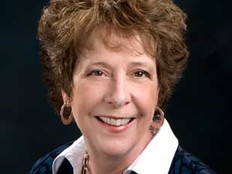CoSN 2018: Expert Lays Out 6 Best Practices for Instructional Coaches
Exponential change is happening in school districts across the country, from curriculum development to digital transformations. Darren E. Draper says coaching is a crucial part of those innovations.
Draper, the director of innovative learning at Alpine School District in Utah, offered six best practices in technology and instructional coaching Tuesday at CoSN’s annual meeting in Washington, D.C.
"You need to have strong professional learning communities," Draper told the packed audience. "If you look at a school system, coaching has an essential place."
Alpine School District is the largest school district in Utah with more than 75,000 students and 78 schools — not counting its special purpose programs and schools.
Draper's best practices, which he selected from his two decades of working in education technology leadership roles and from other experts in the field, are as follows:
-
Identify clear coaching goals with specific metrics of success. "It's important to define that success criteria," Draper said. After a goal is set at Alpine School District, instruction is delivered, followed by common assessments, data collection and analytics, he said. Once that is done, the team revisits the goal and determines its next steps before refining the practice and moving on to target areas of improvement.
-
Delineate coaching roles. "Time and other resources should be allocated strategically," Draper said. "If you have multiple types of coaches, identify where one person's role begins and another's begins."
-
Coaches are not evaluators, but they help teachers evaluate their own practices. "That's so important," Draper said. "You will have success if you remove the evaluation piece from their role. Teachers need to be able to be vulnerable in a coaching situation, so coaches shouldn't evaluate." Most important, Draper said, "It's really important that you keep your coaches coaching if you want the coaching to have success."
-
Administrator behaviors matter. "Publically they need to be enthusiastic supporters," Draper said. "Privately, behind the scenes, that's where the magic happens. They need to be strategic planners."
-
Successful coaches require ongoing, high-quality professional learning. Draper said Alpine uses the ISTE Standards for Coaches. "You're creating experts, and they need to have regular professional development," he said.
-
Limit coaching focus. Research shows that coaching is less effective when programs get larger, Draper said.
Catch all of our coverage of CoSN 2018 by bookmarking EdTech’s conference landing page.









